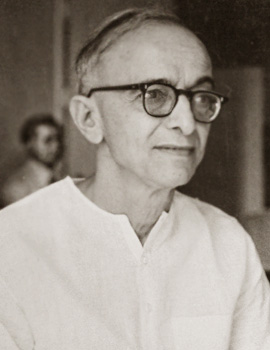 Romantic theme in Modern India Literature is quite different from the Western Romanticism. First, there was a significant time lag between the former`s heyday in Europe and its influence in India (Chayavadi in Hindi language, Asan/Vallathol in Malayalam language, Jonaki era in Assamese language, and so on were influential in the early decades of the twentieth century). Even in terms of ideology, the two differed rather significantly. Aijaz Ahmad points out the association between European Romanticism`s "obscurantist tendencies" and high Brahmanism in Orientalist constructions of India in the late eighteenth and early nineteenth centuries.
Romantic theme in Modern India Literature is quite different from the Western Romanticism. First, there was a significant time lag between the former`s heyday in Europe and its influence in India (Chayavadi in Hindi language, Asan/Vallathol in Malayalam language, Jonaki era in Assamese language, and so on were influential in the early decades of the twentieth century). Even in terms of ideology, the two differed rather significantly. Aijaz Ahmad points out the association between European Romanticism`s "obscurantist tendencies" and high Brahmanism in Orientalist constructions of India in the late eighteenth and early nineteenth centuries.
The Romantic writers in the regional languages often attack Brahmanism or other local elitisms. In Hindi, Chayavad was a reaction to the prosaic matter-of-factness of the earlier mode; khadiboli Chayavad`s emotionalism lent itself to patriotic compositions. In Assamese, "Jonaki" writing`s lyrical descriptions of the Assamese landscape may be connected to Assam`s specific material relation to industrialization and, at the same time, may be seen as a vehicle for reform and nationalism. Romantic poetry in Tamil also broke with earlier convention but used it to affirm nationalism. If English Romantic literature was instrumental in constructing civic colonial subjects, its indigenous variants were seeking to remove traditional caste and linguistic orthodoxies, while proclaiming a new "middle-class" ideology- anticolonial nationalism. One could say that the impulse to characterize all these specific attempts to revolt against literary decline has been understood under the umbrella of "Romanticism," but they are really distinct.
Romanticism in India, moreover, has a special context in its specific application by Gandhi. The "Romantic critique of industrialism" in Carlyle and Ruskin was taken over and extended by Gandhi (Sarkar 1983, 180). Its anti-industrial thrust, which supported Gandhi`s critique of colonialism, influences many writers, from Gujarat (Betai, Umashankar Joshi) to Tamil Nadu (Subramaniam Bharati) to Assam (Jonaki writers).
In this sense, Romanticism is not merely a literary attitude but is connected to a popular program for both national autonomy and social uplift.
This article is a stub. You can enrich by adding more information to it. Send your Write Up to content@indianetzone.com



















